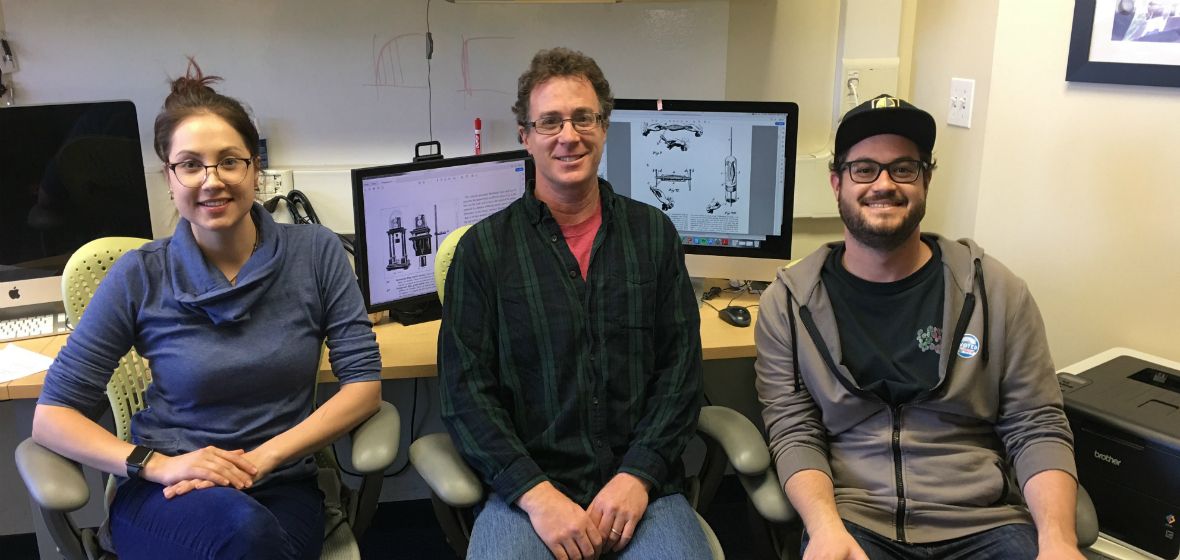Gideon Caplovitz, associate professor of psychology from the College of Liberal Arts, received a National Science Foundation award to help fund his collaborative research on the cognitive processes of octopuses. Caplovitz and his partners, Walter Besio from the University of Rhode Island and team leader Peter Tse from Dartmouth College, were recently awarded nearly $300,000 in order to fund proof of concept research as they develop and test potentially transformative methods.
The team is working on performing the world’s first non-invasive neural recording in an awake behaving octopus. In order to record the activity of an octopus’ “brain” they will have to develop electroencephalography (EEG) sensors that can record neural signal underwater, combat corrosion in salt water and remove unnecessary noise from the environment that may interfere with the study.
{{RelatedPrograms}}
“Of all species on earth, the octopus has one of the most different brains from us; our nearest common ancestor was likely some sort of aquatic worm that lived over 500 million years ago,” Caplovitz said. “And yet, they exhibit pretty complex and sophisticated behaviors in terms of things animals can do.”
Unlike most animals, octopuses do not really have a complete central processing unit such as a brain. Instead, their central nervous system is more distributed and what people typically think of as being their head primarily contains their digestive organs.
“Octopuses’ brains are so different from ours,” Caplovitz said. “This raises the fundamental question: given how divergent we are as species and how different our brains are – how is it that we’ve evolved to manifest similar cognitive processes?”
Caplovitz claims that octopuses exhibit behaviors indicative of intelligence and demonstrate complex problem-solving skills. Currently, the octopuses in the study are housed in aquariums with one wall displaying a screen in which Caplovitz and his team can display video to test their reaction to different stimuli.
“It’s fascinating – an adult octopus has the mental processes that allows them to do something a human infant has to develop,” Caplovitz said.
“The emergence of these shared abilities demonstrates this ability is important, and it could be mediated by a foundational, neural computation common to both species,” Caplovitz said. “The goal of our project is to identify such foundational, computational neural mechanisms. What are the primitive neural mechanisms that govern the octopuses’ – you can’t even really call it a brain – central nervous system and how are they similar or different than what we humans use."
“If we can identify what these primitive computations are, that has ramifications for all sorts of things in terms of here’s how you build a nervous system and that also has ramifications for chip development and artificial intelligence," Caplovitz said.
In their research, they will test how the human brain responds to known stimuli underwater with EEG sensors that record neural wave activity. They will compare these recorded waveforms against known waveforms to ensure the underwater sensors are picking up the correct activity. They will then use this to compare the response of the octopuses to the humans.
The National Science Foundation funding will enable the development of the first underwater noise-cancelling EEG sensors as well as the initial neural recordings in both humans and octopus. If successful, the project will open the door to larger scale investigations of the neural basis of octopus cognition.
The project was born out of two existing NSF EPSCoR consortia, through which Tse and Caplovitz research the neural basis of attention and Besio developed the prototype electrodes. The NSF encourages researchers who are not in close proximity to each other to work together bringing convergent expertise to solve difficult problems. The current project brings together Caplovitz’s expertise in analyzing EEG recordings, Tse’s expertise in the octopus and Besio’s technical expertise with the development of EEG electrodes.
All data, artifacts and modeling software that the team develop will be publicly available for others to use. If they are able to develop the first underwater, non-invasive EEG recordings of octopuses, they will also transform how researchers understand aquatic species and underwater behaviors by further use of their sensors.












